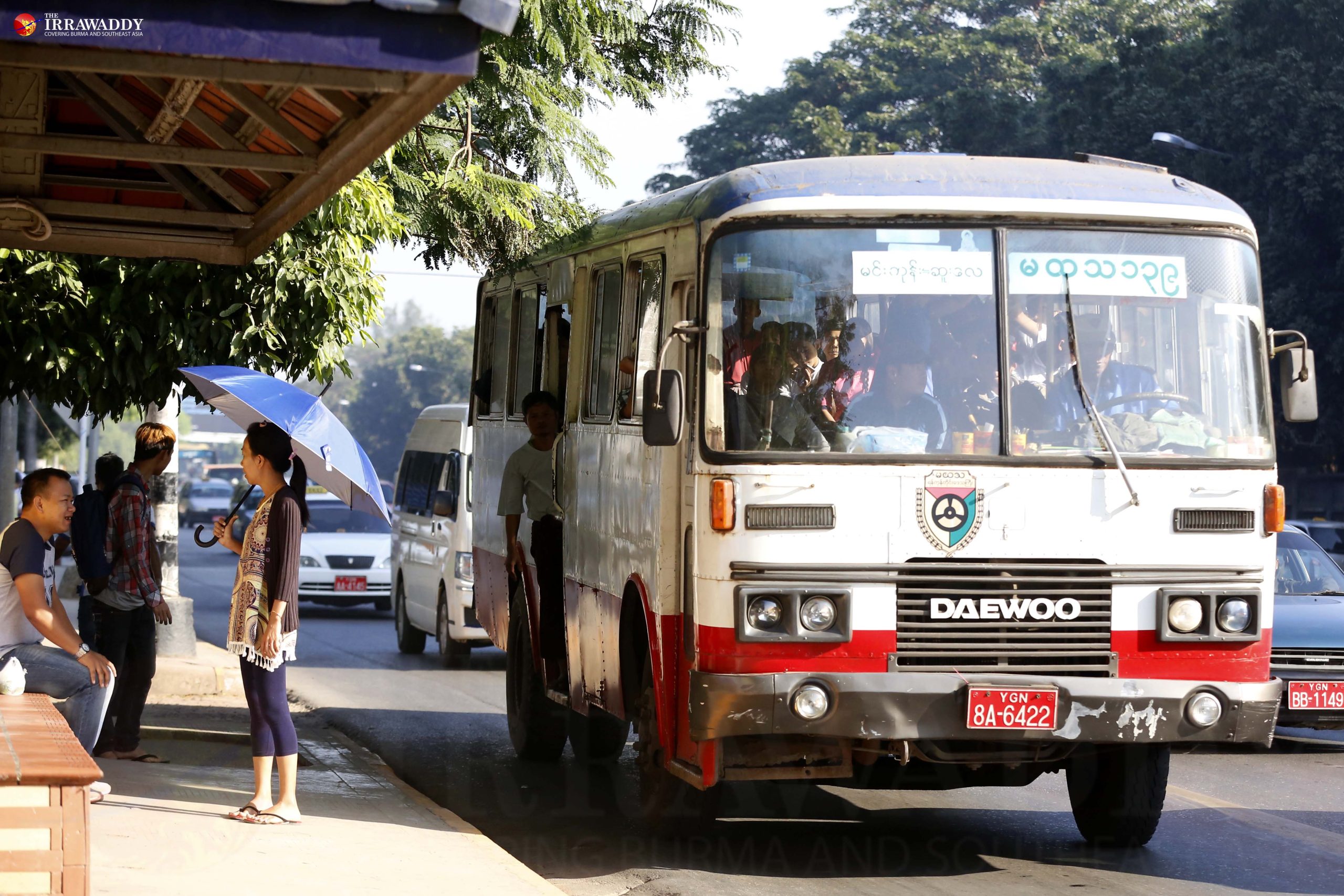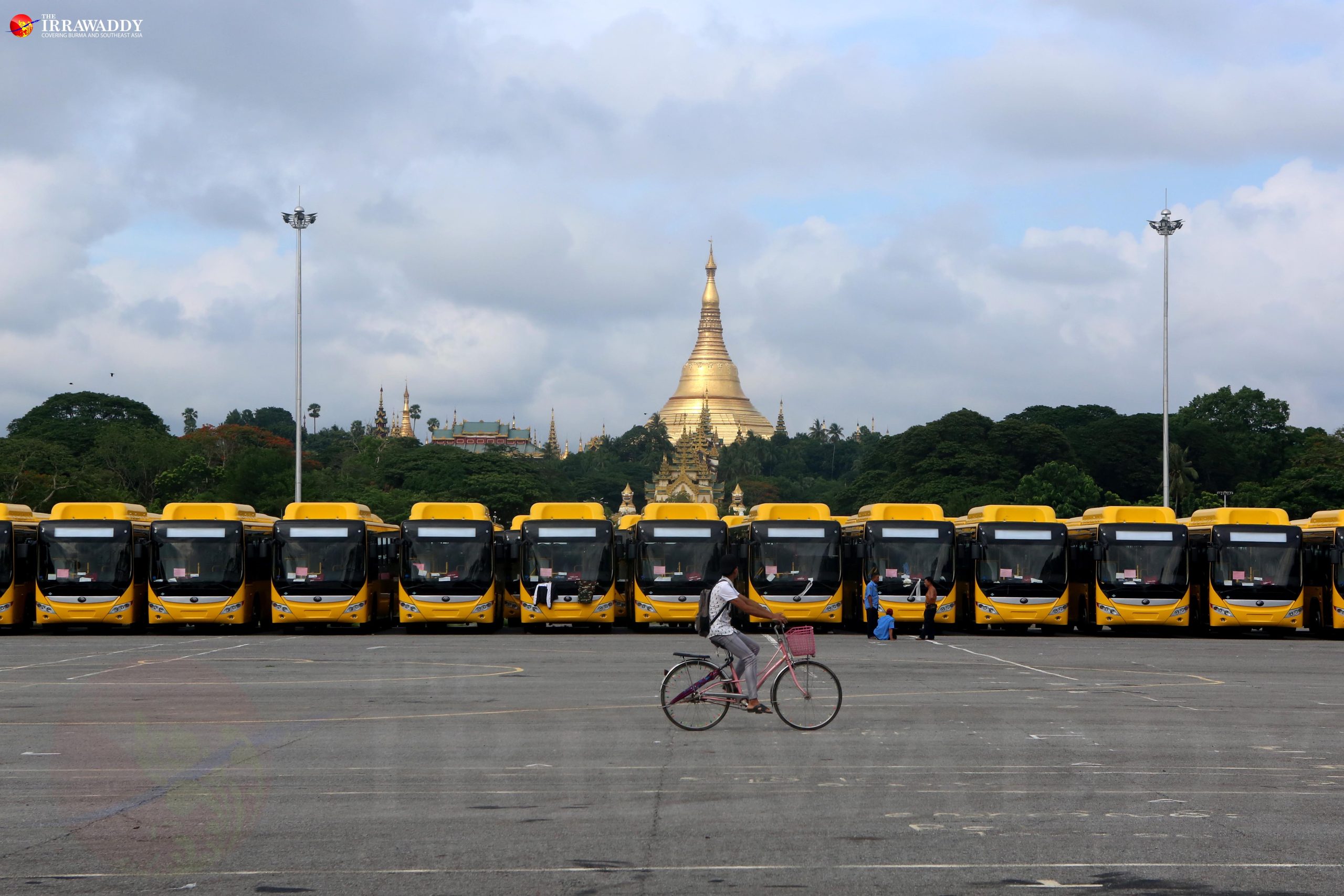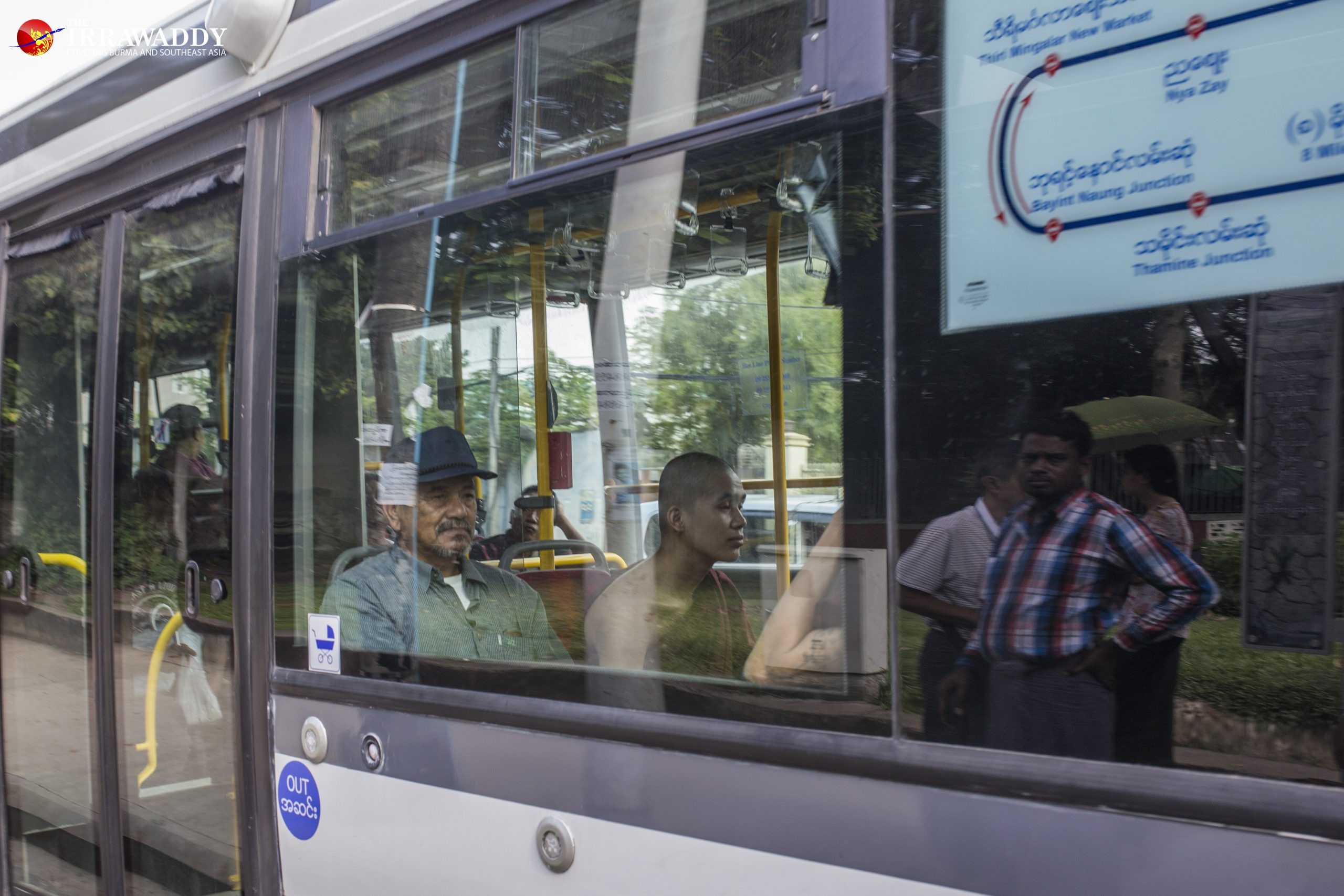Two years of military rule have wreaked havoc on public services across Myanmar, bringing misery even to commuters in the commercial capital.
Commuters who use the Yangon Bus Service (YBS) face long waits, robberies and pickpocketing, and rising fares, among other problems.
Since the coup, waiting times for Yangon’s buses have soared to anything between 30 minutes and two hours. Passengers said the buses used to come every five minutes.

“I wait almost two hours for the No. 89 YBS bus every day. And when one does come, it’s full of passengers. It isn’t convenient for us,” said a Yangon resident.
The transport chaos has knock-on effects such as commuters being late for work, having to pay extra for taxis, and being exhausted by long waits and journeys on crowded buses with no free seats.
YBS is the main public transport system in Yangon and serves most of the city’s 1.3 million commuters daily.
It was introduced in 2017 when the National League for Democracy (NLD) government reformed the Yangon Division Motor Vehicles Supervisory Committee (better known as Ma Hta Tha), which controlled the previous and notoriously poor bus service.

To city commuters’ delight, the old buses were replaced by new air-con vehicles and rude drivers and conductors became a thing of the past. Passengers hailed the new YBS as a modern and smart city transport system.
However, the system began to collapse after the junta abolished its operator, the Yangon Region Transport Authority (YRTA), in May 2021 and reorganized it as the Yangon Region Public Transport Committee (YRTC).
The committee boasts that more than 3,000 YBS buses ply 117 routes to serve 1.35 million passengers daily.
Passengers scoff at that claim, pointing out that long waiting times show there are far fewer buses on the road.
“Buses are rare. A bus that should arrive in 15 minutes comes after 45 minutes,” a Yangon resident told The Irrawaddy.
YBS drivers said the long wait times are because buses face long queues at Compressed Natural Gas (CNG) filling stations due to power outages that have plagued the whole country since last year.
“If I start queueing at the filling station at 8 am, I can fill up at 3 pm. That’s the reason for bus delays,” a YBS bus driver from Hlaing Thar Yar Township told the Irrawaddy.
The queuing time for buses at filling stations was around two hours under the NLD government, according to bus drivers.
Back to the Ma Hta Tha era
Two years of military rule has also seen the return of rude conductors, along with cramped bus journeys made more uncomfortable by the hot season.

“The weather is getting hot but some buses don’t have air-con. I had to wait a long time for the bus, and when it arrived crowded with passengers I was angry,” Yangon office worker Ma Thu Thu said.
Adding to the stress of barking conductors is bus drivers speeding as they compete to pick up more commuters.
The safety and security of passengers has also become a serious issue. As the buses become more crowded, pickpocketing has increased, according to commuters. Reports via social media channels point to an epidemic of robberies and sneak thefts aboard Yangon buses.
Moreover, passengers said that bus fares have surged from 300 kyats to 500 kyats on some YBS routes.
For Yangon commuters, a city transport system they had cherished in the years before the coup now lies in ruins, like other public services in Myanmar under military rule.
“Now it has reverted to the previous Ma Hta Tha era,” Ma Ei said.

















